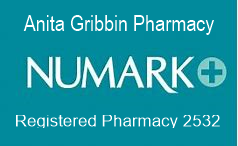Covid-19 antibody testing-lgG, lgM
COVID-19 antibody testing is a finger prick blood test which identifies if the body has developed an antibody response to a COVID-19 infection. Antibodies are produced when you have an infection to help fight it. If there is a positive result, it is likely you have had coronavirus before. If it is a negative result it does not mean you have not had the virus as some people do not make antibodies or they can disappear after a period of time.
It is not a viral test to identify if you currently have COVID-19. You can book a test for current suspected infection here: www.nhs.uk/ask-for-a-coronavirus-test
Before the test
The antibody test should only be performed at least 21 days after recovery from COVID-19 symptoms or 28 days after contact with someone with COVID-19 symptoms. This is to ensure there has been sufficient time for antibodies to be built up in order to be detected.
You will be asked when booking an appointment about current symptoms to ensure you are booking at the right time.
You will be advised to drink a glass of water 30 minutes before your appointment time.
During the test
You will normally be taken to the privacy of a consultation room where some screening questions will be asked. A finger prick of your finger will be carried out and a few drops of blood collected and placed on a testing cassette. This will show the result in only 10 minutes time.
After the test
The results will be explained and it shows both IgM and IgG antibodies. No test can be 100% accurate but the test is highly sensitive and specific for detecting IgG antibodies:
>99.9% sensitivity - this means that among 1,000 people who have had coronavirus, almost 100% of them will correctly test positive.
98% specificity - this means that among 1,000 people who have not had coronavirus, 980 of them will correctly test negative.
The presence of COVID-19 antibodies does not mean that you have immunity against further infection of the virus.
It does not tell you if you can or cannot spread the virus to other people.
Regardless of the result it is important to follow the current Public Health Guidelines on social distancing advice, handwashing and avoid touching the face.



